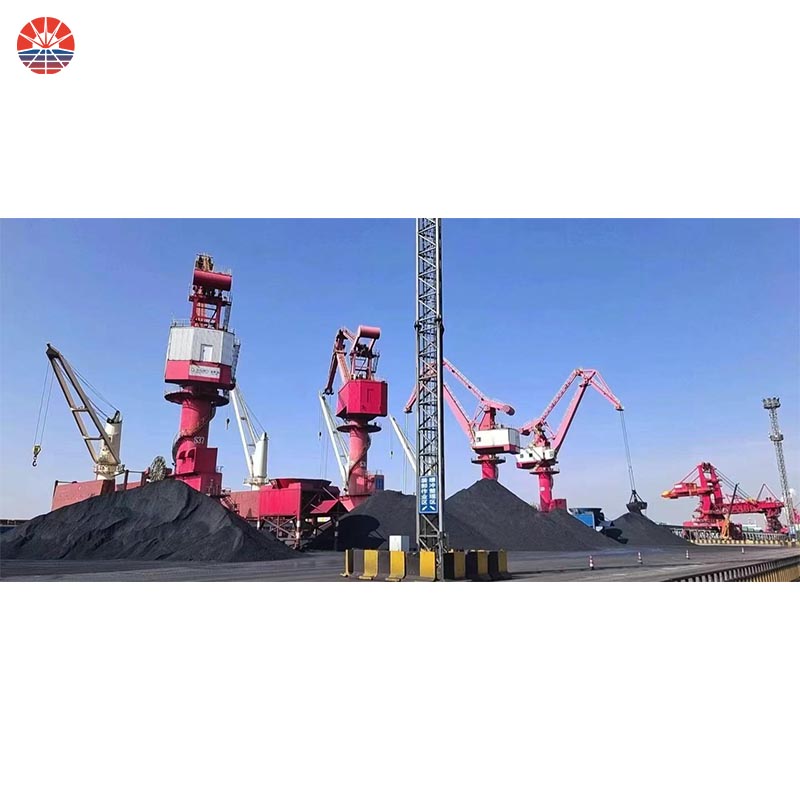Benefits Of Using Petroleum Coke In Aluminum Plant
Petroleum coke (petcoke) can be beneficially used in aluminum plants, particularly in the aluminum smelting process, for specific purposes. Here are some of the advantages of using petcoke in an aluminum plant:
Anode Production: Petcoke is a common material used in the production of carbon anodes, which are essential components in the aluminum smelting process. Carbon anodes are inserted into the electrolytic cells during the Hall-Héroult process, where they are consumed during electrolysis to produce aluminum metal. Petcoke's high carbon content and low impurities make it suitable for producing high-quality anodes.
High Carbon Content: The high carbon content of petcoke makes it an efficient source of carbon for anode production. Carbon anodes must have a high carbon content to withstand the harsh conditions of the aluminum electrolysis process.
Lower Sulfur Content: Petcoke generally has lower sulfur content compared to other carbon sources like coal. Low sulfur content in the anodes is crucial to prevent sulfur-related impurities from contaminating the aluminum during electrolysis.
Energy Efficiency: The high calorific value of petcoke ensures that it can provide the necessary heat during the anode baking process, where the anodes are heated to remove volatile materials before use in the electrolytic cells.
Cost-Effectiveness: Petcoke is often more cost-effective than alternative carbon sources used in anode production, making it a favorable option for aluminum plants.
While petcoke offers these advantages in the aluminum industry, it is essential to consider the environmental and health implications associated with its use. The combustion of petcoke releases carbon dioxide (CO2) and other pollutants, contributing to climate change and air pollution. Additionally, aluminum smelting is a highly energy-intensive process, and efforts are being made to improve energy efficiency and reduce the carbon footprint of the aluminum industry. As a result, aluminum plants are exploring alternative and greener sources of energy and carbon to mitigate their environmental impact and move towards more sustainable practices.
The Role Of Using Petroleum Coke In Aluminum Plant
The primary role of using petroleum coke (petcoke) in an aluminum plant is in the production of carbon anodes. Carbon anodes are crucial components in the aluminum smelting process, specifically in the Hall-Héroult process, which is the most common method for producing primary aluminum.
Here's how petcoke plays a vital role in the aluminum plant:
Carbon Anode Production: Petcoke serves as the main raw material for manufacturing carbon anodes. These anodes are large blocks or rods made of baked carbon and are used in the aluminum electrolysis cells.
Conductive Properties: Carbon anodes provide electrical conductivity within the electrolytic cell. During the aluminum smelting process, alumina (aluminum oxide) is dissolved in molten cryolite within the cell. Electricity is passed through the cell, and the carbon anodes transfer the electrical current to the alumina, causing the aluminum ions to be reduced and form liquid aluminum at the cathode.
Anode Consumption: As the aluminum is produced, the carbon anodes are consumed in the process, converting into carbon dioxide (CO2) and requiring regular replacement.
High Carbon Content: Petcoke's high carbon content makes it an ideal material for producing carbon anodes. It ensures that the anodes have excellent electrical conductivity and can effectively transfer the electrical current during the electrolytic process.
Cost-Effectiveness: Petcoke is often a cost-effective option for manufacturing carbon anodes compared to other carbon-rich materials.
Stable Supply: The petroleum refining industry produces petcoke as a byproduct, providing a relatively stable and consistent supply for aluminum plants that use it for anode production.
Low Sulfur Content: Petcoke usually has lower sulfur content than some other carbon sources. Low sulfur content is essential because high sulfur levels in anodes can lead to undesirable impurities in the aluminum produced.
Overall, petcoke's role in the aluminum plant is critical for producing the carbon anodes necessary for the aluminum electrolysis process. While it provides several benefits, it's essential to acknowledge the environmental and health considerations associated with petcoke usage, as its combustion can result in greenhouse gas emissions and air pollutants. As a result, the aluminum industry is actively exploring alternative, cleaner carbon sources for anode production and adopting more sustainable practices to reduce its environmental impact.












